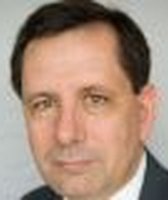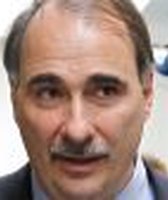Get PolitiFact in your inbox.
SUMMARY: Former President Bill Clinton claims Sen. Barack Obama "said one thing and did another" by accepting lobbyist money.
Former President Bill Clinton recently took an unusual route in trying to dispel Sen. Barack Obama's oft-cited pledge not to accept lobbyist or PAC money in his run for president. Clinton attacked Obama for money distributed to other Democratic candidates through Obama's leadership PAC.
The issue arose in a March 16, 2008, interview with a group of college journalists, the mtvU editorial board, when Clinton was asked why Sen. Hillary Clinton had not joined Obama in swearing off lobbyist money.
"He (Obama) did accept donations from lobbyists and PACs and he spent money in this campaign from that, through his political action committee," Bill Clinton said. "He said one thing and did another."
Clinton is talking here about Obama's leadership PAC, Hopefund. Leadership PACs are political action committees established by members of Congress to support other candidates. Members use such PACs to foster relationships with other members of Congress, who might later support them in bids for leadership posts in Congress or higher office.
Most politicians allow their leadership PACs to go dormant once they formally announce their candidacy for president. Bill Clinton correctly notes that Obama's Hopefund did not. It distributed more than $400,000 worth of donations to various federal and state candidates and parties in the months after Obama declared his candidacy on Feb. 10, 2007. The PAC made its last contribution to a candidate in October 2007.
According to an analysis by the nonpartisan Center for Responsive Politics for PolitiFact, of the $4.5-million raised by Obama's Hopefund, $16,500 came from lobbyists and $125,000 from political action committees. The biggest single donors were lawyers and law firms, accounting for nearly a half-million dollars.
So a small portion of the money came from lobbyists and PACs. But notably, the money was collected before Obama announced his presidential candidacy, which also is when he declared his ban on lobbyist cash.
One question is whether Obama's Hopefund distributions violate Obama's pledge. Because the contributions were made prior to the start of his campaign, we find they do not. Therefore it's a stretch for Clinton to say, "He said one thing and did another."
Still, Obama did accept the money, so we rule Clinton's statement to be True.
In the same interview, Clinton noted that after Obama launched his presidential campaign, 43 percent of Hopefund disbursements went to candidates and parties in Iowa, New Hampshire, South Carolina and Nevada — the early-primary states. The implication is that Obama greased politicians in those states to give his campaign an early boost.
A PolitiFact analysis of the political contributions made by Obama's Hopefund after Obama officially announced his candidacy found that $185,000 went to Iowa, New Hampshire, Nevada and South Carolina (the overwhelming majority went to Iowa and New Hampshire). Another $251,000 went to candidates or state parties in other states. That means 42.4 percent of Hopefund disbursements were spent in the four states. So, Bill Clinton is dead on there and we rule his statement True.
It should be noted that while some of the candidates who got Hopefund donations went on to endorse Obama, some endorsed Hillary Clinton.
Hillary Clinton has a leadership PAC of her own, called HillPAC. It brought in $3.1-million over a similar period (since 2005). Of that, $20,400 came from lobbyists and $327,000 from political action committees, according to the Center for Responsive Politics. HillPAC paid for some of Clinton's current campaign staff before she officially announced her candidacy. It has been shuttered since, but in 2006, HillPAC contributed about $60,000 to federal and state politicians in Iowa, New Hampshire and South Carolina.
Bill Clinton's comments shed light on a little-known corner of campaign finance. Leadership PACs have developed into a multi-million dollar campaign finance tool. During the 2006 election cycle, 256 leadership PACs contributed more than $37-million to federal candidates.
The purpose of the donations to various candidates is clear, said Paul Ryan, an attorney for the Campaign Legal Center, a nonpartisan, nonprofit organization that specializes in analyzing campaign finance.
"You are building your political clout," Ryan said, "so you can call in favors in the future" such as an endorsement.
In December 2007, the Clinton campaign called on Obama to close Hopefund and contended that the disbursements after Obama announced his candidacy violated election laws. Though no laws specifically require candidates to close their leadership PACs, Ryan said, it is a legal gray area and most politicians shelve them just to be sure. Obama and his staff maintained that they did nothing improper.
"I think that folks from some of the other campaigns are reading the polls and starting to get stressed and issuing a whole range of outlandish accusations," Obama said in a news conference on Dec. 2, 2007, in Iowa. "Everything that we've done is in exact accordance with the law."
Regardless, Ryan argues, there's not much difference between making a contribution to a candidate the day before you launch your presidential campaign or six months later. The effect is the same.
"Whether you are making contributions for state or federal candidates before you have announced your presidential candidacy, you are advancing your political ambition toward political office," Ryan said.
It is also quite common to use leadership PACs to the pay salaries of folks who are working on your "pre-campaign," as Hillary Clinton did. After the candidate announces, those people then become campaign staffers.
Leadership PAC money also is often used to raise the profile of a candidate who is still "testing the waters," to fly to early primary states like Iowa or South Carolina to discuss issues of local import, Ryan said.
"Virtually everything (the leadership PACs) do is raising and spending money to advance their political careers and ambitions," Ryan said. "The whole thing is a charade, in my opinion."
Bill Clinton claims it proves "it's not true that he (Obama) has run a campaign without any special interest money influencing the presidential campaign."
PolitiFact has already weighed in on Obama's pledge not to take money from lobbyists or PACs, finding that while he has eschewed money from federally registered lobbyists, he has accepted thousands from people who work for lobbying firms. We have also noted that Hillary Clinton has raised more campaign donations from registered lobbyists than any other candidate.
And it would be naive not to see that aside from lobbyists, all candidates take money from CEOs and others who certainly are hoping to wedge some future influence.
"Refusing lobbyist money is largely a symbolic choice," said Massie Ritsch, a spokesman for the Center for Responsive Politics.
Our Sources
MTV.com, Bill Clinton Says He 'Never Said A Bad Word About Senator Obama,' At mtvU's First 'Editorial Board,' by Chris Harris, March 17, 2008
OpenSecrets.org, Hope Fund: Expenditures
U.S. Census Bureau, Annual Estimates of the Population for the United States and States, and for Puerto Rico, April 1, 2000 to July 1, 2005
Washington Post, "Obama Campaign Worker Discussed PAC Donations," by John Solomon, Nov. 30, 2007
Campaign Legal Center Blog, "They Walk Like Ducks, Quack Like Ducks, But Claim They're Not Ducks," by Paul S. Ryan, Feb. 16, 2007
Associated Press, "Clinton campaign calls on Obama to shut down his political action committee," Dec. 2, 2007
Interview with Massie Ritsch of the Center for Responsive Politics, March 17, 2008
Interview with Paul Ryan, an attorney for the Campaign Legal Center, March 17, 2008










































